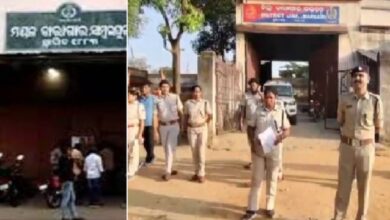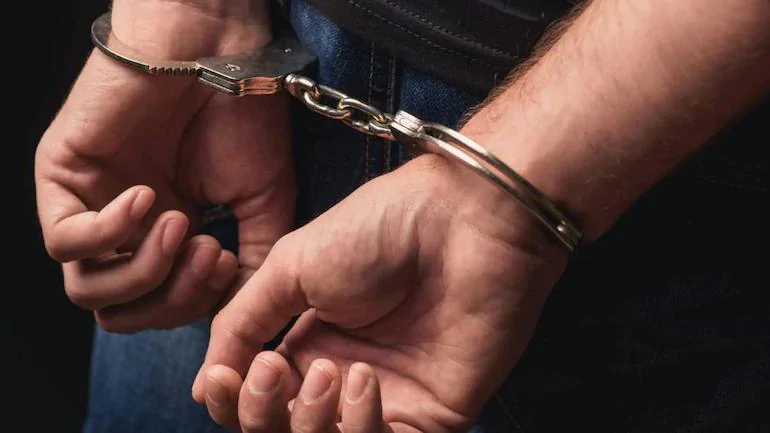Prisoners’ Access To Courts And Hospitals Falls By 65 Pc And 24 Pc

Kolkata, Feb 8: Access of prisoners to courts fell by 65 per cent and to hospitals by 24 per cent, according to the Prison Statistics India (PSI) 2020, the latest official statistics on the state of India’s prisons and their inmates, published in December 2021. The PSI is periodically published by the National Crime Records Bureau, an entity of the Government of India.PSI 2020 presents data from January 2020 to December 2020.
The India Justice Report (IJR), which, since 2019, has been reporting on justice delivery in India, has analysed PSI 2020. The analysis shows prisoners’ visits to courts came down nearly a third, from about 44.5 lakhs in 2019 to 15.5 lakhs in 2020. Impacted too was inmates’ access to health services, with the number of visits, made by prisoners for medical attendance, declining from 4.77 lakh in 2019 to 3.63 lakh visits in 2020. Visits by medical personnel to prisons also reduced from 24,524 in 2019 to 20,871 in 2020, while visits by judicial officers nearly halved to 9,257 in 2020 from 16,178 in 2019.
Maja Daruwala, Chief Editor of the India Justice Report, said, “The status of essential capacities decides the efficacy of the pillars of the justice system to deliver to the standards they have set for themselves. The PSI 2020 presents a grim picture of the state of prisons through the pandemic. Despite the many efforts to decongest these institutions, and minimise the risks of contagion inherent in these overcrowded places, their overall condition has not improved.”
About 9 lakh more arrests were made in 2020, and, taken at December 2020 in terms of absolute numbers, the prison population grew 1.5% from 481,387 to 488,511 inmates. The annual increase is particularly worrying; given that 2020 was a Covid year when a slew of decongestion efforts were being implemented across the nation.
However, the total number of people entering and leaving prisons in the course of the year fell from 19.02 lakhs in 2019 to 16.31 lakhs in 2020. As of December 2020, nationally, overcrowding stood at 18%, a marginal reduction of 2 percentage points from the previous year. This figure is the national average across 1,306 prisons. In nine states overcrowding rates are more than the national average. Much of this overcrowding is accounted for by the presence of ‘undertrials’. Their share has increased from 69% in Dec 2019 to 76% in Dec 2020; showing that for every 1 convicted prisoner, there are 3 people in custody awaiting ‘investigation, inquiry or trial’.
This follows a long-term trend. Five years ago, in 2016, undertrials accounted for 68% of the prison population. As with all preceding years, a majority of prisoners come from amongst the poor and illiterate. Besides chronic overcrowding, other long term comorbidities in the prison system have persisted and indeed worsened. Across the country and despite this period traversing a pandemic, the shortage of medical officers and staff continues; and, in some states, their numbers have, in fact, gone down. Nationally, vacancies among medical staff and officers stand at about 33%, which means 1 in every 3 posts has not been filled.
There were 797 medical officers in the country’s prisons to serve nearly 489,000 inmates. On average, this means each medical officer was looking after 613 inmates. However, the Model Prison Manual 2016 requires there to be 1 medical officer for every 300 inmates. The sanctioned strength in 17 states does not meet this criterion. Only 9 states have managed to reduce their medical officer vacancies. From January to December 2020, total deaths went from 1764 in the previous year to 1887.
The deaths remain categorised as ‘natural’ ‘unnatural’ and ’cause not known’, and deaths related to Covid have not been disaggregated. The average number of prisons equipped with a video conferencing facility rose from 60% in 2019 to 69% in 2020. 13 states/UTs had 100% coverage across their prisons. In contrast, 6 states/UTs had less than half of their prisons equipped with this facility. Tamil Nadu, with 142 prisons, had only 10% or 14 jails with a V-C facility. None of Lakshadweep’s 4 prisons had this facility available.






